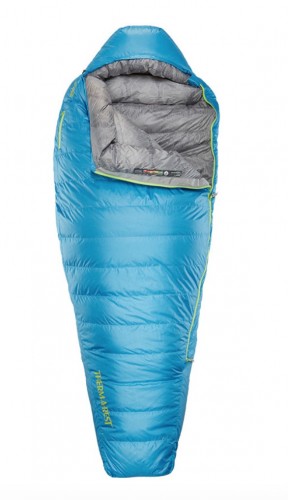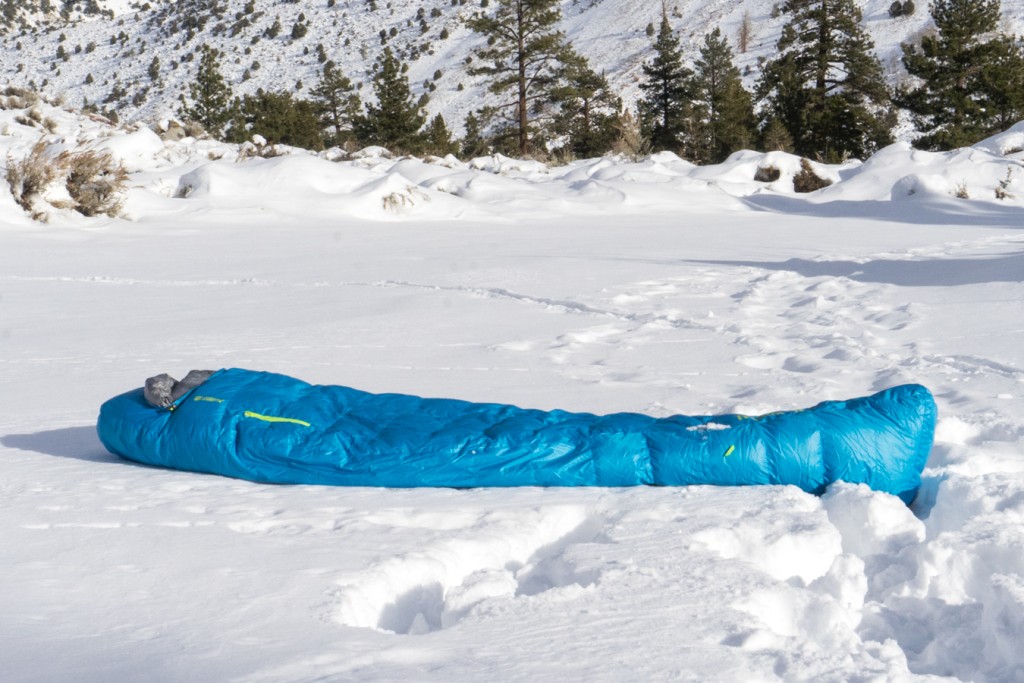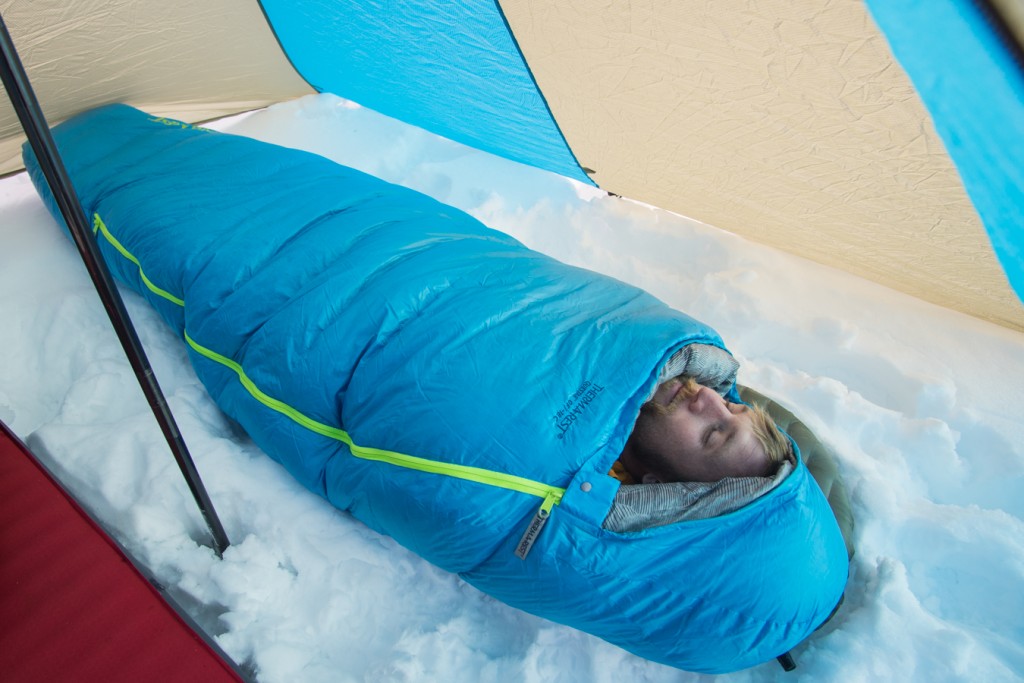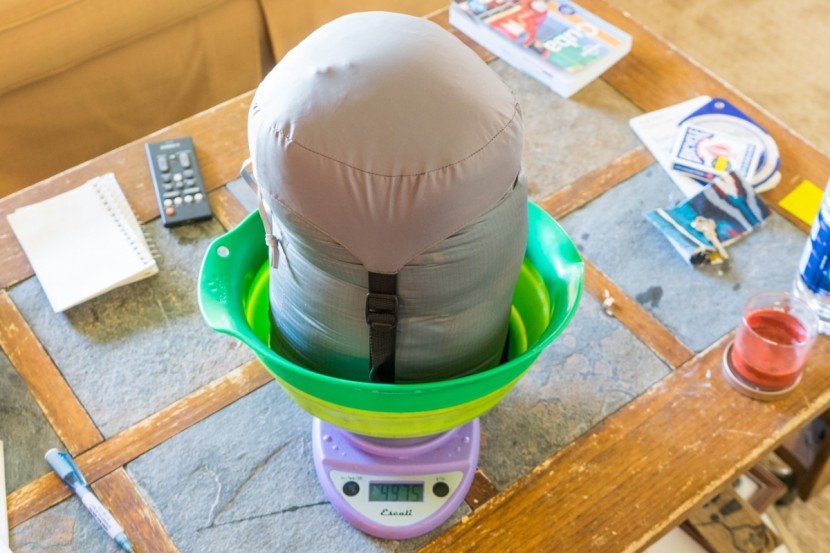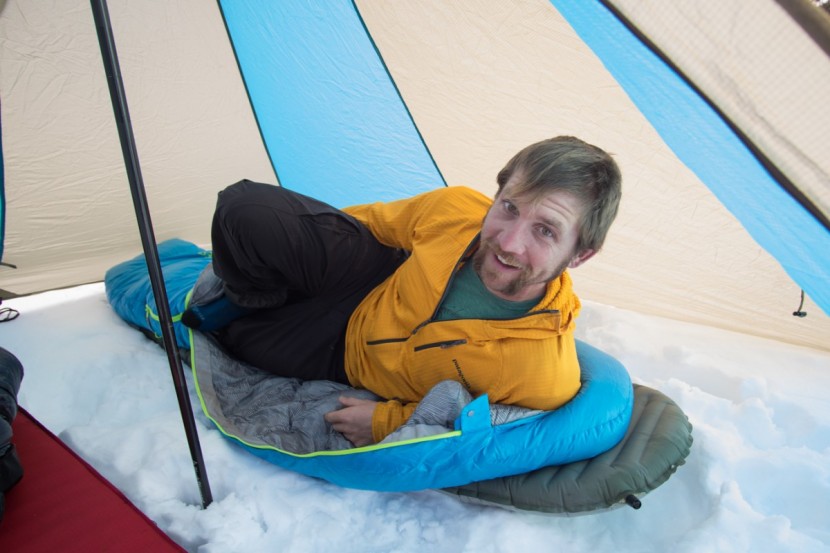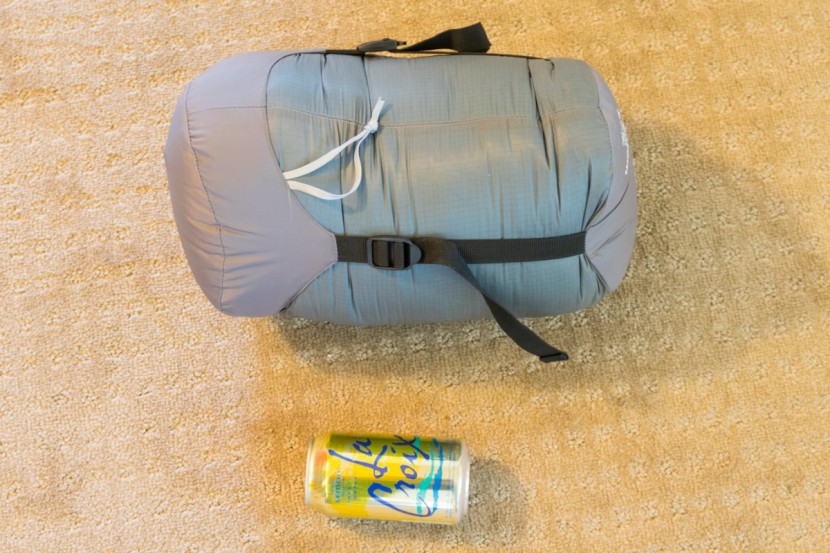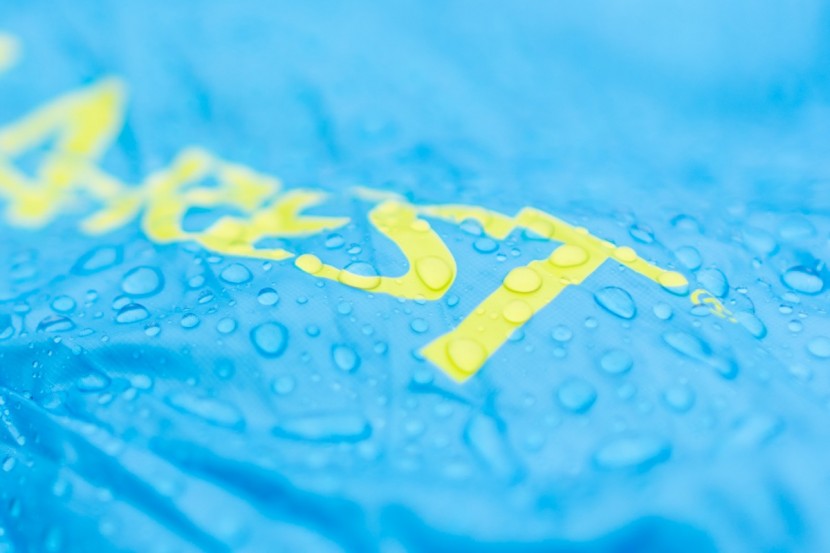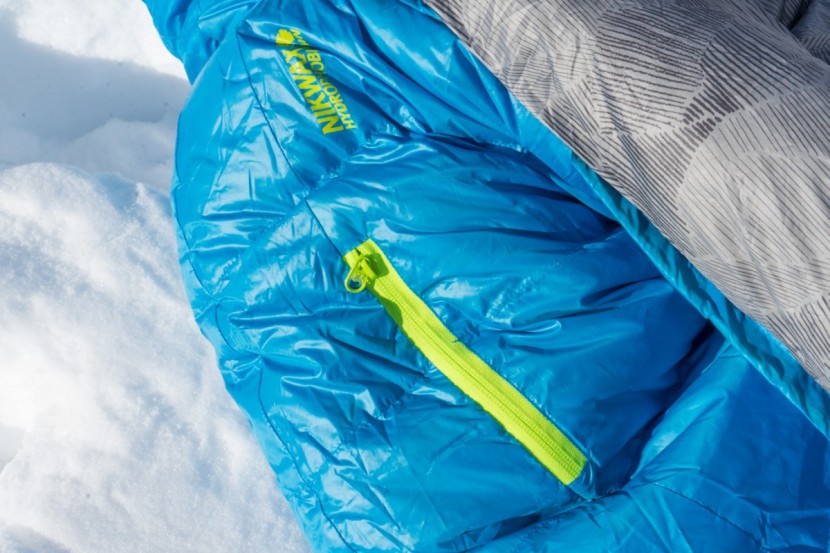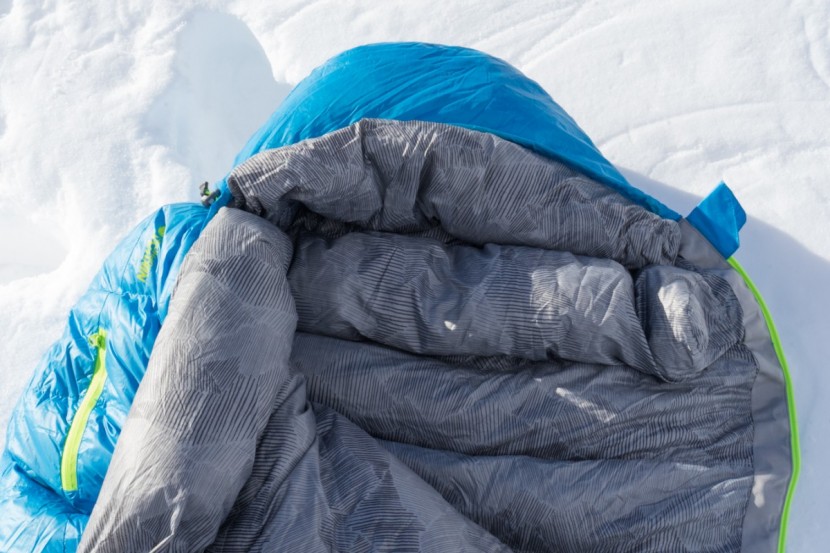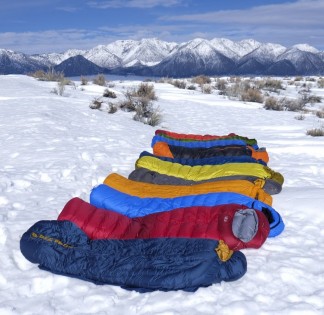Therm-a-Rest Questar 0 Review
Our Verdict
Our Analysis and Test Results
Warmth
The Questar 0 gets an EN rating of 14F for its comfort range, 0F for its “transition” range, and -40F for its risk (you're gonna die) range. As living, breathing humans, we don't take much stock in EN ratings determined by heat sensors on manikins. We're in the backcountry using these sleeping bags on a regular basis for work and our own personal objectives, and at the end of the day, the comfort range is what really matters to us. That leaves the Questar with a lower score in the warmth metric.
The Rab Ascent 900 uses the same 650-fill down, but it has approximately 2.7 oz more down, making it loftier. Additionally, the Rab has a narrower cut, giving the Questar the comfort advantage, but making it a more efficient insulator. There is a lot of extra room in the Questar, and we found it necessary to pack any layers we weren't wearing around our legs to stay comfortable on cold nights, a strategy we employed with almost every bag we tested, the exceptions being the snug-fitting Big Agnes Crosho -20 and the Feathered Friends Snow Bunting.
Weight
The 650 fill down used in the Questar doesn't have as good of warm-to-weight ratio as bags that use 850+ fill down, but it still manages to weigh under 3 lbs, 46.7 oz to be exact, and costs around half as less as the high fill power competition.
Suitable for backpacking, but by no means ultralight, we'd choose the REI Co-op Magma 10 over the Questar if weight was our top priority after staying within a tight budget. For more comfort and little extra warmth, we'd grab the Questar.
Comfort
Thanks to 63" of shoulder room, the Questar is a great bag for folks who like to sleep on their sides and stomachs. Again, be prepared to stuff your bag with extra layers to reduce the amount of uninsulated space when the temperatures are at the limit of your comfort.
The Synergylink connectors (a very fancy name for removable elastic straps that connect the bag to a sleeping pad) also benefit the active sleeper, keeping you from rolling off your pad onto the cold ground.
Packed Size
This bag stuffs down into our tester compression sack fairly easily, much better than the huge Marmot Col -20. Among products priced on the low end of the spectrum, only the lighter and smaller REI Magma 10 takes up less space in a pack.
We did notice that the 650 fill down takes longer to re-loft than bags with a higher fill power, so it's crucial not to store this bag in a stuff sack. The included storage sack is a little small in our opinion, and your bag will last longer in a larger storage sack, or even better, hanging in your closet.
Weather Resistance
The shell fabric on this bag is 20-denier ripstop nylon with a DWR treatment, and it keeps water out of the bag and off of the down in light rain and mist. It has no trouble repelling melting frost and dew. The down has a Hydrophobic Nikwax treatment. Therm-a-rest claims the Nikwax treated down maintains its loft 60 times longer than untreated down. We're not sure what that means in the real world. In our experience, bags with treated down have faster drying times, so the treated down earns the Questar a few extra points in the weather resistance metric.
We'll say again, do your best to keep your down dry, as none of these bags are waterproof, and a soaking wet down bag is worthless as an insulator.
Features
This bag is loaded with features, some of which we found useful, others a little gimmicky. The Synergylink connectors are nice if you roll around during the night since they keep you on your pad, and we liked that they're removable. If you don't like this feature, leave them at home. Putting them on is a little tedious, and we found it challenging to attach them to the bag with cold hands, and very difficult with gloved hands. Do yourself a favor and put them on at home, then just slide your mattress in place when you're out in the cold.
This bag has a down-filled foot pocket that all of our testers loved. We found that when your feet needed a little extra boost, sticking them in this pocket made them warm up quicker, especially with a handwarmer thrown in. We found this feature to be a main positive point among the testers and can easily take our feet out and stretch if we wanted. This means you get the comfort of the large cut but can also hunker down if needed. The two-way zipper is nearly snag-proof and is situated higher on the side of the bag so it's easy to get in and out even when the bag is connected to a pad, creating a nice down nest. This bag has a zippered pocket on the outside of the bag. This will keep small items accessible, but not insulated, so items with batteries will still need to go somewhere inside the bag.
Value
This bag is a great value. Its weight and temperature rating make it a versatile bag for year-round adventures in regions with relatively mild winters and high-elevation summer camping trips. If you need an all-around winter bag that keeps money in your pockets for the other gear you'll need, this is a great choice.
Conclusion
If you want to do some camping in milder winter weather (not below 10), you'll find comfort at a friendly price with the Therm-a-rest Questar. At under 3 pounds, this bag would be fine for shorter, summertime backpacking trips in the High Sierra as well.


